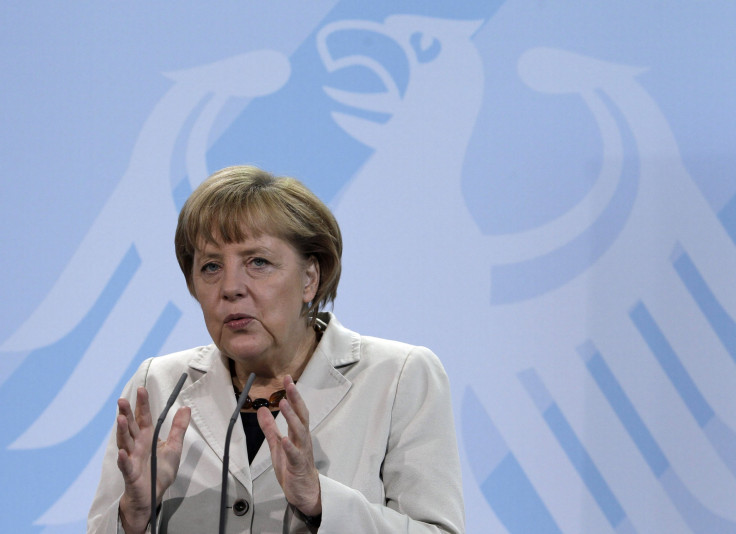Week Shaping Up to Be Make-It-Or-Break-It Moment For Greece

A meeting in Athens Tuesday between the Greek political leadership and German Chancellor Angela Merkel will be a highlight in euro zone crisis developments this week. The visit could also determnine the Hellenic Republic's future within the currency union.
The visit by Merkel into what is essentially enemy territory -- a detail of 7,000 police officers will be deployed to protect her from angry Athens mobs -- will certainly be the noisiest event.
But the most significant could take place just a few hundred meters away from the presidential palace receiving line, as Finance Minister Yannis Stournaras will continue to negotiate with representatives from the European Union, the European Central Bank and the International Monetary Fund, the so-called troika, regarding the country's current bailout.
Troika officials have been in communication with Athens in anticipation of a "progress report" expected later this month, which needs to stipulate that Greece is following the austerity conditions imposed as part of the international rescue if the country is to receive the latest tranche of finance -- as much as $41 billion.
Greece wants the new funds as soon as possible. But European negotiators are asking the country's political leadership to undertake an $18 billion package of austerity cuts, including more pension and wage reductions, to receive their positive nod. The Greek government, in command of an economy going through Depression-era contraction, is reluctant to approve those measures.
"Talks are continuing,” Stournaras told Bloomberg Friday, as conferences on the deal paused for the weekend. “There are differences and we’re not there yet. We will continue next week.”
Elsewhere in Europe, a monthly meeting of the euro zone finance ministers will be seen as a vital metric of the level of support Greece receives from other European countries regarding its current efforts. Official statements after that meeting will be analyzed in light of developments in the past few weeks that have made some international experts, including IMF Managing Director Christine Lagarde, suggest Greece might need yet another bailout.
“It’s important that this can be concluded in the coming weeks,” European Union Commissioner for Economic and Monetary Affairs Olli Rehn told BusinessWeek Friday, referring to the troika's progress report on Greece and suggestions of another rescue. “Negotiations have progressed well in the past few days and last night. This is why I assume and expect the euro-group to give a positive and supportive statement on Greece’s progress.”
Ahead of that meeting, national leaders were already airing what are likely to be their policy positions later in the week. German Finance Minister Wolfgang Schauble said the EU ministers should wait for the troika's report before issuing their own opinion on Greece.
Luxembourg Finance Minister Luc Frieden told financial newswire MNI the officials should issue a statement of support for a new bailout of Greece "if it doesn't cost much more money."
International financial markets fell Monday on disappointing economic news from Asia and worries about Spain, with the Global Dow, a benchmark of international blue-chip companies, down 0.63 percent. Greece was not deemed to be a factor in those market worries.
© Copyright IBTimes 2024. All rights reserved.





















